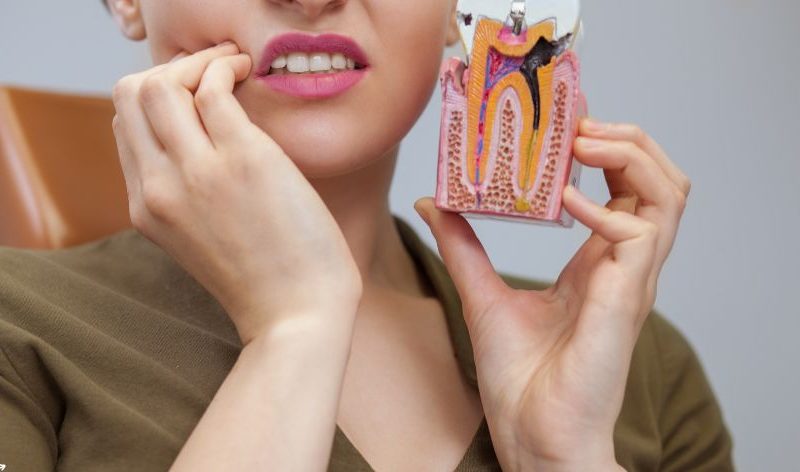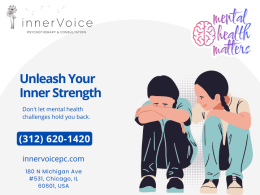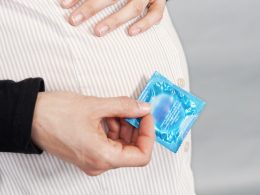Dental emergencies are sudden, critical situations that put your dental health at a risk. These mostly associate with excruciating pain, swelling, bleeding and underlying infections. If not treated promptly, dental emergencies can deteriorate with time, leaving you in utter distress. Worry not – this blog will discuss about some common dental emergencies and guide you on measures regarding proper management. Read on below.
Top 7 dental emergencies that prompt an immediate dental visit
-
Severe toothache
Toothache is one of the most common dental emergencies addressed by emergency dentists globally. It creeps in as an intense, throbbing pain, slowly radiating through the jaw and face. Common causes for toothache are dental cavities, bacterial infections, etc. Moreover, you can also experience heightened sensitivity towards hot and cold food items, a sharp pain while biting or chewing foods and sore gums.
How to handle?
- Rinse the mouth with lukewarm salt solution. Doing this disinfects the affected area and reduces inflammation. You can also use a medicated mouthwash.
- Floss in a gentle manner after having meals. This helps remove stuck food remnants and lessen the discomfort.
- Take painkillers after consulting with your dentist. E.g., ibuprofen or acetaminophen (avoid giving aspirin to children).
-
Broken or cracked tooth
Accidental falls, hard bites, or an impactful injury in the mouth can sometimes result in broken or cracked teeth. Getting help from an emergency dentist allows determining the extent of damage done to the particular tooth and its surrounding tissues.
How to handle?
- Rinse your mouth with warm water to disinfect the affected region.
- Save any broken tooth shards, and bring them along to the dentist.
- Gently press a clean gauge for at least 10 minutes if you see extreme bleeding.
- Use a cold compress over your outer cheeks close to the affected region. This will reduce swelling and pain.
- Avoid chewing from the injured side and visit a dentist immediately.
-
Broken orthodontic devices
Damaged or broken braces can result in significant discomfort to the mouth, disrupting daily activities, including eating and drinking. Regardless of your dentures been cracked, chipped, or fully broken, such situations necessitate urgent dental care.
How to handle?
- Use orthodontic wax to cover the sharp end of the wire.
- Do not cut down the wire (this can lead to accidental swallowing of the pieces).
- If there is a loose bracket, try to reposition it in a gentle way. The best you can do is leaving it as it is or securing it with orthodontic wax.
- Go to your orthodontist immediately for repairs.
-
Knocked-out tooth
Losing a tooth can be pretty much painful and traumatic; however, taking quick action can increase the possibility of tooth retention. Various incidents can cause tooth to get knocked out, such as, a sudden and impactful fall, injury during sports, road accidents, etc. The critical time period for re-implanting the knocked-out tooth is typically within half-an-hour to 2 hours after the incident. A timely emergency dental visit makes the process even easier.
How to handle?
- Hold the knocked-out tooth by the crown, and not the root.
- Rinse the tooth under running water (if it has got dirty). However, avoid scrubbing or rubbing out the tissue remnants.
- Try reinserting the tooth into its socket (if possible), and hold it in place by biting down gently on a clean cloth.
- If you cannot reinsert the tooth, simply place it in milk or a mild saline solution.
- See a dentist immediately; ideally within 30 minutes after the incident. The chances of saving the tooth are more in such a case.
-
Dental abscess or infection
Dental abscesses develop over the surrounding tissues of a rotten tooth root. If left untreated, these can be incredibly painful, paving the path for serious systemic infections over time. Common symptoms of a dental abscess involve intense jaw pain, facial swelling, fever, and foul smell in the mouth (due to pus exudation)
How to handle?
- Getting a warm saltwater rinse. This helps draw out the pus and reduce inflammation.
- Never try to drain the abscess on own.
- Take over-the-counter pain medications to manage the discomfort better.
- Visit an emergency dentist as soon as possible
-
Lost filling or crown
Dental fillings and crowns are crucial dental restorations that help protect damaged teeth from decaying further. However, continued use or accidental physical trauma can lead to loosening and falling out of the restorations. Not only do these situations expose the tooth to potential damage but they can also lead to intense pain and discomfort.
How to handle?
- If you see your crown coming off, try placing it back to your tooth using toothpaste or a dental adhesive, until you visit the dentist.
- Avoid chewing from the affected side of the mouth.
- If your filling or crown has completely come off, ensure keeping it in a safe place until your dental appointment.
- See your dentist for repairing and restoration purposes.
-
Gum injury or bleeding
Gum injuries may happen for multiple reasons, such as trauma from an accident, harsh brushing, or underlying issues like gum disease. If you observe ongoing bleeding or infected swelling in your gums, it’s crucial to get immediate dental care to identify the issue and obtain suitable treatment to avert any additional harm.
How to handle?
- Disinfect the area with a warm salt solution.
- Apply gentle pressure with a clean cloth or gauze to atop bleeding.
- if the injury is deep enough, seek immediate dental care.
- Use a cold compress over the outer cheek to minimise swelling and pain.
Conclusion
Dental emergencies can be distressful; however, knowing how to manage them calmly can save your overall oral health and relieve pain effectively. With several private dental clinics in London now offering comprehensive emergency dental care services, you can obtain a dedicated team of dentists who are prompt in treating toothaches, cracked or broken teeth, knocked-out teeth, infections, etc. Thus, if you ever face any emergency dental issue, do not delay and book your consultation at the earliest.
Read more: Blood Sugar Myths: What You Need to Stop Believing











